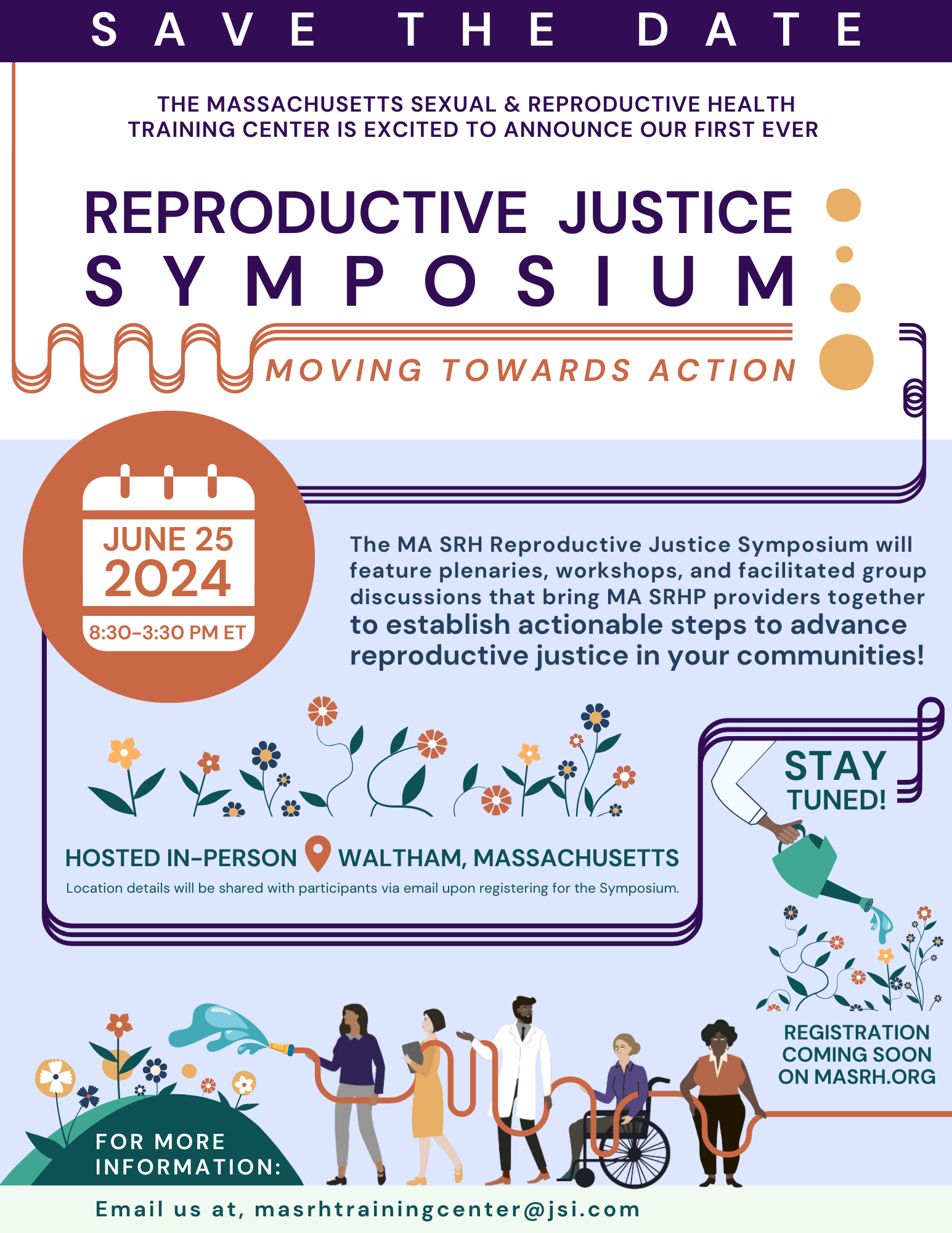Reproductive Justice Symposium: Moving Towards Action
June 25th, 2024 | 8:30 AM - 3:30 PM
Hosted in Waltham, Massachusetts.
Symposium location will be sent out to participants who register.
The Massachusetts Sexual and Reproductive Health Training Center invites you to join our first in-person gathering focused on reproductive justice!

ABOUT THE SYMPOSIUM
The Training Center has partnered with the Massachusetts Department of Public Health (MDPH), state and national experts, and community leaders to bring you a day filled with opportunities to explore how reproductive justice influences your work. Our goal is to help you identify practical steps to advance reproductive justice in the communities you serve. The day will feature a mix of plenary sessions, workshops, and peer-to-peer discussions.
OUR VENUE
The Reproductive Justice Symposium will take place on June 25, 2024 from 8:30 AM-3:30 PM in Waltham, MA.
Parking is available on site, free of charge.
The symposium is scheduled to end at 3:30 PM providing space for you to continue your day’s remaining activities. MDPH expects SRHP providers, as part of their grant, to allocate resources for transportation. If transportation costs are a barrier, please contact the Training Center.
REGISTRATION COMING SOON!
Registration will be going live in the next few weeks and will be required for attendance. Food will be served and registrants will be able to note dietary needs in the registration form. The Training Center will work as best as we can with the venue to meet your dietary needs.
AGENDA
For the detailed agenda, please check back in the coming weeks.
SPEAKERS
More information about our speakers coming soon!
COVID SAFETY PRECAUTIONS
More information about steps the Training Center is taking are coming soon!
This page will be updated regularly with more information.
Contact us at masrhtrainingcenter@jsi.com for more information or questions!
